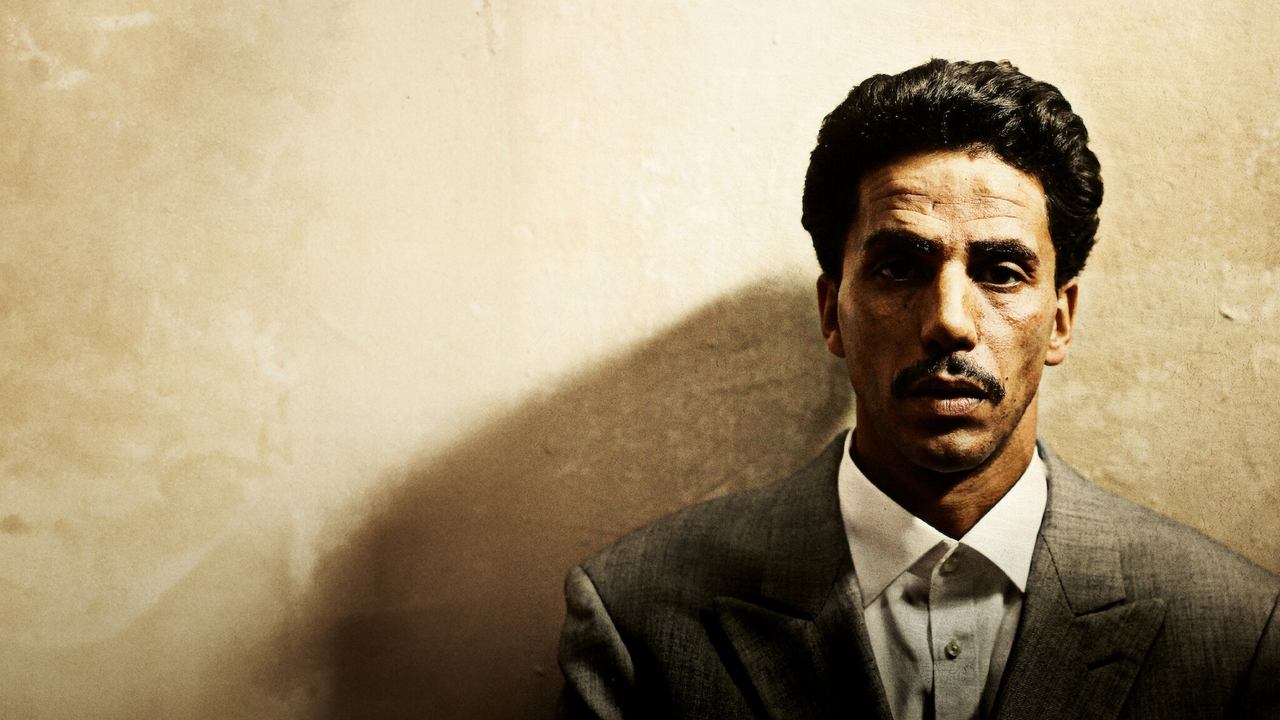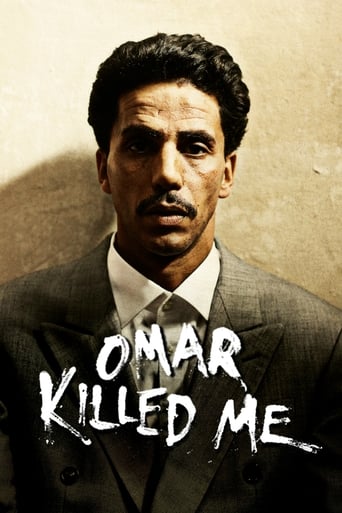GamerTab
That was an excellent one.
Glucedee
It's hard to see any effort in the film. There's no comedy to speak of, no real drama and, worst of all.
ThedevilChoose
When a movie has you begging for it to end not even half way through it's pure crap. We've all seen this movie and this characters millions of times, nothing new in it. Don't waste your time.
Livestonth
I am only giving this movie a 1 for the great cast, though I can't imagine what any of them were thinking. This movie was horrible
jotix100
A true story about a Morroccan immigrant gets a full production from actor Roshdy Zem. In his second directorial job, M. Zem takes us to a case involving Omar, an innocent man, accused of killing a wealthy woman who used to employ him. As in "Bad Faith", Roshdy Zem makes a case for the under privileged man at the mercy of a justice system that is clearly prejudiced against the man because prejudice on the circumstantial evidence that surfaced in the case. As the story begins, we are taken to a casino where we watch Omar playing the slot machines. He is a loser, as it is the case with most people trying their luck in a game where all odds are against them. It comes as a complete surprise when the police comes to arrest him, being accused of killing his wealthy employer. Omar has everything stacked against him. Nothing seems to be in his favor as he goes on trial. Omar receives an eighteen year jail term for something he did not do.The film is told from the viewpoint of Omar, which is clearly the way it happened. The man's dignity is put to a test as he is incarcerated as punishment by a penal system that is set in finding him guilty without examining the real facts on the case. A friendly writer sees the opportunity to prove the innocence of Omar, which unfortunately only produces a book, but no release from prison.This is a good documentary that moves with an excellent pace thanks to M. Zem's take on the subject. The director collaborated with the real Omar Raddad in the adaptation of the material for the film. The result is an emotional expose on the misuse of French justice. Sami Bouajila appears as Omar and Denis Podalydes, of the Comedy Francaise, is the friendly writer who tried to help the innocent man.One can only hope the film stirred enough controversy in France about the case. It is obvious the real Omar Raddad wants justice.
FilmCriticLalitRao
Omar M'a Tuer is about an ordinary person who has been put in prison for a crime which he believes not having committed. Director Roschdy Zem portrays that there are very few possibilities for an ordinary man to defend his honor in a criminal case where the real culprit is enjoying his life elsewhere. As a part legal drama as well as part social commentary, Omar M'a Tuer is a socially relevant film about the ineffectiveness of the criminal justice system in France. About his decision to choose direction it needs to be stated that actors making their foray in the field of cinema is a positive development as they can give much needed boost to films which are based on original content. It can be surmised that while watching "Omar M'a Tuer", those viewers who know much about French culture and history would not hesitate a bit in drawing parallels between the film's tale and Emile Zola's infamous Dreyfus case. In both cases, public opinions were more in favor of underdogs who did not have much political power to pursue their cases.
Doha Film
On June 24 1991, Ghislaine Marshall, a wealthy widow, is found murdered in the basement of her villa in Mougins, near Nice. An inscription on her door written with her blood reads, "Omar killed me" and automatically directs investigators to Omar Raddad, her Moroccan gardener who barely speaks French and is eventually sentenced to 18 years in prison, despite no evidence.Based on true events, the case of Omar Raddad outraged the media at the time and questioned the very integrity of the French juridical system against foreigners. Raddad was tried in 1996, partially pardoned by then President Jacques Chirac in 1996 and finally released in 1998. In France, Omar is still considered guilty by the law, and this film, based on his autobiography, might be his last attempt to clear his name.The film tells two stories; the investigation by writer Pierre-Emmanuel (Denis Podalydès), and Omar's time in prison. At the same time, we learn of Omar himself, a simple but stoic man, who didn't go to school, but believes in the honor of his name and that of his family.As the film demonstrates, there were no traces of blood on his clothes, no indication of his presence at the crime scene. Evidence also points to the fact that he was somewhere else at the time of Marshall's death. But in a classic case of corruption, Omar is left to fight against a whole system. Results are manipulated, and Marshall's body is burnt to avoid further investigation. The frustration of his situation pushes Omar to go on food strike in prison – and desperation eventually that leads him to attempt suicide.Sami Bouajila has an impressive approach to Omar – he doesn't talk much, but uses his eyes to express his predicament. Consequently, his sparse use of dialogue is all the more effective. "I have no more life, the judge destroyed it," he cries. The portrayal granted Bouajila the Best Performance Award at the 2011 Doha Tribeca Film festival, alongside a Best Arab Narrative Filmmaker award for director Roschdy Zem.This is not a film with outstanding cinematic techniques, but presents a story rooted in reality and Omar's injustice. Zem solicits powerful performances from his cast, without mining the material for pity. The director is an actor himself and this, his second feature, presents the cause of Omar as unfinished business – justice has yet to be delivered.Similarly, the investigation at the heart of "Omar Killed Me", even as it sets out to prove his innocence, allows the audience to look for clues, make connections and judge for themselves. We follow the investigation of a police drama which is based on fact and where the judges play devil's advocate. There is little conflict over Omar's innocence, but a dawning realization that those in power are readily able to gather their facts and manipulate them in order to convince those who already suspect Omar of the crime. In the end, the film shines a spotlight on a long forgotten case. One can't but respect a filmmaker who sets out to try and make a change.
blogurious
How do you rebuild a life after a criminal accusation that is mainly supported by a foreign tribunal in a land where you feel totally out of place? "Omar M'a Tuer" is a compelling portrait of an innocent man taken to justice when his alibis and ability of communication in a language he cannot master aren't enough to justify his being on the wrong place and the wrong time. This movie is quite an emotional ride, fast paced and very realistic, confirming the old saying that "justice is blind" could easily materialize around us when we least expect. It is hard enough to prove a person's innocence by using veridical evidence when the main reason of such accusation cannot be verified against growing racism. It raises the question whether a citizen might receive the same treatment when clear prejudice from the Justice Department can be so compromising. Very good movie that not only tackles the never ending problem of legal injustice but also cultural misconception. Worth watching.

